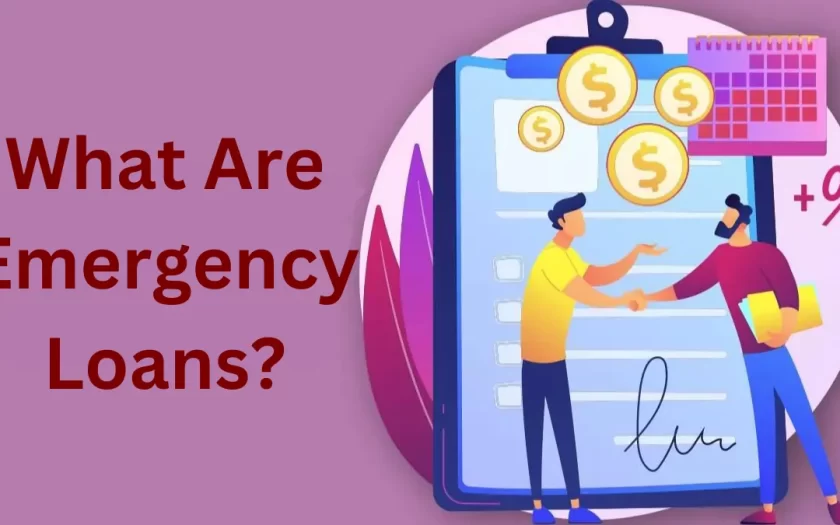Life is full of unexpected twists and turns, and sometimes, those twists and turns come with a hefty price tag. Whether it’s a sudden medical bill, an urgent car repair, or an unexpected home expense, emergency loans can provide the financial lifeline you need when faced with unforeseen circumstances. But what exactly are emergency loans, and how can you access them?
Table of Contents
What Defines an Emergency Loan?
Emergency loans are personal loans designed to provide quick access to cash when you need it most. Unlike traditional loans that may take days or even weeks to process, emergency loans are often approved and disbursed within 24 hours. They typically come in smaller amounts, ranging from a few hundred to a few thousand dollars, and have shorter repayment terms compared to other types of loans.
Types of Emergency Loans
There are several types of emergency loans available, each with its own features and requirements:
- Personal Loans: These unsecured loans are offered by banks, credit unions, and online lenders. They generally have lower interest rates than other emergency loan options but may require a good credit score for approval.
- Payday Loans: These short-term loans are based on your income and upcoming paycheck. They are often easy to qualify for but come with extremely high interest rates and fees, making them a less desirable option.
- Title Loans: These secured loans use your vehicle as collateral. While they can provide fast cash, they carry the risk of losing your vehicle if you fail to repay the loan.
- Credit Card Cash Advances: If you have a credit card, you can get a cash advance from an ATM or bank. However, cash advances often come with high fees and interest rates.
- Pawn Shop Loans: These loans involve pawning a valuable item in exchange for cash. You can reclaim your item by repaying the loan with interest.
Where to Get an Emergency Loan
- Banks and Credit Unions: Traditional financial institutions offer personal loans that can be used for emergencies.
- Online Lenders: Online lenders specialize in quick loan approvals and disbursements, making them a convenient option for emergency cash.
- Payday Loan Stores: While not the most ideal option due to high costs, payday loan stores offer fast access to funds.
- Title Loan Companies: If you own a vehicle, you can get a loan by using it as collateral.
Requirements for an Emergency Loan
The specific requirements for an emergency loan vary depending on the lender and the type of loan. Generally, you’ll need to provide the following:
- Proof of Income: Pay stubs, bank statements, or tax returns to demonstrate your ability to repay.
- Identification: A government-issued ID like a driver’s license or passport.
- Bank Account Information: This is for direct depositing the loan funds.
How Much Can You Borrow with an Emergency Loan?
The loan amount you can borrow with an emergency loan depends on several factors, including your income, credit history, and the lender’s policies. Personal loans typically range from $1,000 to $50,000, while payday loans are usually limited to a few hundred dollars.
Interest Rates on Emergency Loans
Interest rates for emergency loans vary widely depending on the type of loan and your creditworthiness. Personal loans generally have lower interest rates than payday loans and title loans. It’s essential to compare rates from different lenders before choosing a loan.
Emergency Loans vs. Payday Loans
Emergency loans and payday loans are both designed to provide quick cash. However, they differ significantly in terms of interest rates, repayment terms, and potential risks. Payday loans are notorious for their high costs and should only be considered as a last resort.
Emergency Loans vs. Personal Loans
While both emergency loans and personal loans can be used for unexpected expenses, emergency loans are specifically designed for quick funding and may have slightly higher interest rates than traditional personal loans.
Are Emergency Loans Safe?
Emergency loans are safe when obtained from reputable lenders. However, it’s crucial to research and compare lenders thoroughly to avoid predatory lending practices. Beware of lenders who charge exorbitant fees or have hidden terms and conditions.
What to Consider Before Taking Out an Emergency Loan
- Interest Rates and Fees: Compare rates from different lenders to get the best deal.
- Repayment Terms: Ensure you can comfortably repay the loan within the given timeframe.
- Lender’s Reputation: Research the lender’s credibility and customer reviews.
- Alternatives: Before resorting to an emergency loan, explore other options, such as borrowing from friends or family or using a credit card.
Emergency loans can be a valuable tool when faced with unexpected financial needs. By understanding the different types of emergency loans, their requirements, and potential risks, you can make informed decisions and choose the best option for your situation. Remember, responsible borrowing is key to avoiding financial pitfalls.
